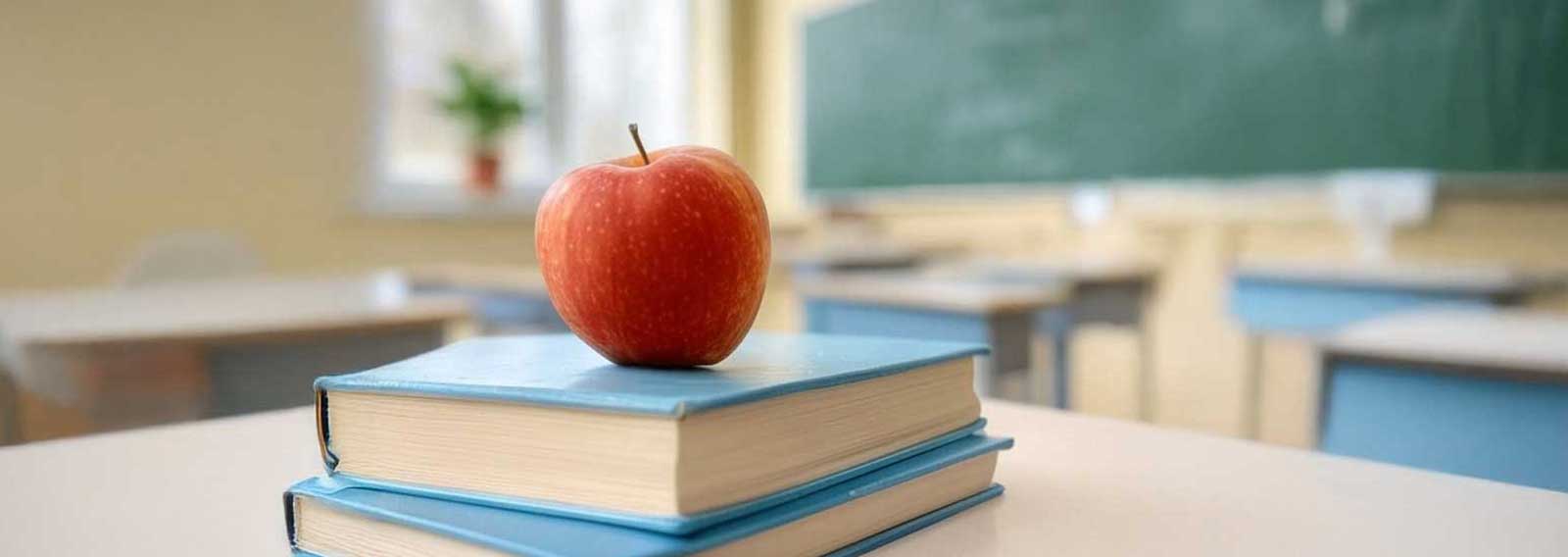Millions of students this week shall return to school and commence the thousand hours they will spend in the classroom this year. Pupils repeat this thirteen times before finally graduating and moving on to employment or further study. Needless to say, thirteen thousand hours is a massive time investment, not to mention the financial investment, that each of us contributes to this endeavour. Yet how deeply have we considered what we are aiming to achieve from this investment? What is the purpose of schooling and education?
I suspect this is a question many parents and even teachers have not thought seriously about. Listening to parents longing for the return of school term as holidays draw to a close, I get the impression some parents view schools as little more child carers that free them up for their career pursuits. Other parents and educators hope that schools might prepare students for university and adult careers. The competitive environment surrounding OC and selective schools demonstrates the widespread desire for a high ATAR and entrance into prestigious university courses. Another group is more interested in the content and skills that schools teach. This is also reflected in the attention and concern that has been recently given to declining numeracy and literacy rates in Australian schools. Although I agree this a major problem and I’m glad to hear about the push to return to explicit instruction methods to rectify this, I believe there are more foundational problems to be addressed within educational thought in Australia.
The idea that the primary aim of early education is to prepare the society’s young for a job or career is relatively new. For most of history, the average person would learn all necessary life and job skills from their parents; sons would continue the line of work of their fathers. Few had the opportunity to receive an external education apart from the wealthy who could hire tutors. However, since the Renaissance and especially the Protestant Reformation, a new emphasis was placed on the importance of universal education, but these educators had a very different end in mind than many today. Although some of their graduates would continue their studies in universities to become scholars, lawyers, clergy, or physicians, the preliminary educators’ main concerns were not economical, but ethical. Education was not for growing the pupil in wealth but in wisdom and virtue.
This ethical concern of education is what we find taught by Scripture and by early Pagan and Christian philosophers. A classic example in the way Israelite parents were commanded to diligently educate their children in the commands of the Torah, talking about them at every opportunity (Deuteronomy 6:7). The end of this is that they might learn wisdom. A couple of chapters prior, Moses states, ‘You shall keep and do [these commands], for that is your wisdom and your understanding in the sight of the peoples who will hear all these statutes and say, “Surely this great nation is a wise and understanding people” (Deut. 4:6).[1] The book of Proverbs emphasizes the surpassing value of wisdom: “Take my discipline and not silver, And knowledge rather than choicest fine gold. For wisdom is better than pearls; And all desirable things cannot compare with her” (Prov. 8:10–11). In the New Testament, many passages reinforce this. Christ commands that the nations be discipled and taught to obey all his commands (Matt. 28:19–20). Paul, in Ephesians 6:4, instructs fathers to raise their children in the discipline and instruction of Christ. Likewise, Peter exhorts diligence in adding to faith virtue before the rest (2 Peter 1:5, NKJV).
Early Christian writers also wrote of the primacy of wisdom and virtue in education. Augustine writes, “we do well to love that which, when we love it, makes us live well and virtuously. So that it seems to me that it is a brief but true definition of virtue to say, it is the order of love” (City of God, XV.22).[2] C. S. Lewis unpacks this as, “the ordinate condition of the affections in which every object is accorded that kind of degree of love which is appropriate to it.”[3] Lewis indicates that both Plato and Aristotle agreed with this focus in education, the latter writing, “we must be brought up in a certain way straight from childhood, as Plato says, so as to enjoy and be pained by the things we should, since this is what the correct education is”[4] (1104b). Virtue was central to Aristotle’s idea of the good life, which he discusses at length in the Nicomachean Ethics. He divides virtue into that of thought (e.g. wisdom and understanding) and that of character (e.g. justice, courage, and temperance). The former, he says, “comes about and grows mostly as a result of teaching”, whereas the latter “results from habit” (103a).[5] Plato appeared less certain as to the possibility of teaching virtue. In the Meno, where he considers this very question, Socrates concludes the dialogue stating, “Virtue would be neither an inborn quality nor taught, but comes to those who possess it as a gift from the gods” (99e).[6]
This “classical” approach to education has many advantages over the predominant “pragmatic” theories of our day, which gained prominence through the work of John Dewey (1859–1952). Firstly, classical education seeks to educate pupils as people and to shape them in habits of mind and behaviour to become good people, not merely economical or political units and taxpayers. It recognises that man’s purpose lies beyond things of this world. It affirms the existence of objective and transcendent values. Such ideas help to shift pupils’ minds from the immediate cares and anxieties of each day, inviting them to enter a realm of serious exploration to muse upon and wonder at that which is infinite and eternal.
Secondly, unlike Dewey, classical education values the past as a treasure trove of wisdom. The fifth commandment requires that we honour our fathers, promising a blessing on those who do. Yet it is rare that one will encounter a book in thirteen years of Australian education more than a century old (apart from Shakespeare). Classical education, on the other hand, follows Lewis’ advice to read old books.[7] It invites students to think alongside the great minds of history (though not uncritically), reading the primary sources themselves, eventually in the original Greek or Latin. This approach leads students to a greater appreciation and understanding of the world around them and their place in it. It also helps them to develop good cultural taste by exposing them to the greatest music, art, and literature that man has yet made – the riches of their cultural inheritance.
Finally, by encountering these great works, pupils learn by imitation how to think, speak, and live well. Apart from direct instruction in logic and rhetoric, pupils encounter and practice imitating the style of great poets. However, their value goes beyond this as characters and stories historical and fictional exemplars of virtue and vice.[8] He will learn with Homer’s Odysseus the emptiness of worldly pleasure and the love of home. Sophocles’ Antigone will demonstrate the courage to do justice even when opposed. Virgil’s Aeneas will direct in living virtuously no matter the environment. Just as Abraham will demonstrate faith, Ruth loyalty, and Paul perseverance. Not only shall such figures instruct but delight and inspire young hearts to follow suit. Such as these prove better examples of virtue than those of pop culture and teen fiction. The ability to think logically, speak well, and live virtuously is valuable in every vocation.
Having been exposed to what education has been and may again be, I grieve for what education currently is and fear how it continues to shape our culture and society. Observing its results, I must admit we don’t raise much above Martin Luther’s criticism of the schools of his day: “Even when the training is done to perfection and succeeds, the net result is little more than a certain enforced outward respectability; underneath, they are nothing but the same old blockheads, unable to converse intelligently on any subject or to assist or counsel anyone.”[9]
Can we truly call a man educated if he has been deprived of his cultural inheritance? If he has never dialogued with Socrates, reasoned with Aquinas, or been critiqued by Kant? If he has never been introduced to ordinary people by Austen, Dickens, or Dostoyevsky? If he knows not the mighty feats of Beowulf’s battles or the pilgrimage of Bunyan’s Christian? If he has not listened to an oratorio of Handel, a cantata of Bach, or a symphony of Beethoven? What becomes of such a man? And if he does not develop a taste for the good when he is young, how shall he when old?
Parents and teachers across Australia are increasingly becoming aware of the deficiency of what generally passes for education. Many parents are opting to teach their children themselves or with others in community in co-ops like those run at Emmanuel Baptist Church and Smithfield Baptist Church. Some are starting classical schools based on these principles, such as Hartford College (Sydney), St John of Kronstadt Academy (Brisbane), and others affiliated with the Australian Classical Education Society (ACES).
The best thing that parents can do for their children’s education is to understand that it is not the school or the government that are responsible for it but themselves. Take interest in what your children are learning and the people they are becoming. If you are not content with what you find, you have the power and the duty to do something about it.
[1] All Scripture quotations unless otherwise stated are from the Legacy Standard Bible (Three Sixteen Publishing, 2022)
[2] Augustine of Hippo, “The City of God,” in St. Augustin’s City of God and Christian Doctrine, ed. by Philip Schaff, trans. by Marcus Dods, A Select Library of the Nicene and Post-Nicene Fathers of the Christian Church, First Series (Christian Literature Company, 1887), ii, 303
[3] C. S. Lewis, The Abolition of Man or Reflections on Education with Special Reference to the Teaching of English in the Upper Forms of Schools (HarperOne, 2001), p. 16.
[4] Aristotle, Nicomachean Ethics, trans. by C. D. C. Reeve (Hackett, 2014), p. 24.
[5] Ibid., p. 21.
[6] Plato, “Meno”, trans. by G.M.A. Grube, in Complete Works, ed. by John M. Cooper (Hackett, 1997), p. 897
[7] See Lewis’ Introduction to Athanasius’ The Incarnation of the Word of God (Macmillan, 1946), pp. 5–12.
[8] This is the Calvinist poet, Sir Philip Sidney’s (1554–1586) argument in his essay ‘The Defense of Poesy’.
[9]Martin Luther, ‘To the Councilmen of All Cities in Germany That They Establish and Maintain Christian Schools,’ trans. by H. Ashley Hall, in Christian Life in the World, ed. by Hans J. Hillerbrand, Kirsi I. Stjerna, and Timothy J. Wengert, The Annotated Luther (Fortress Press, 1524), v, p. 269





















